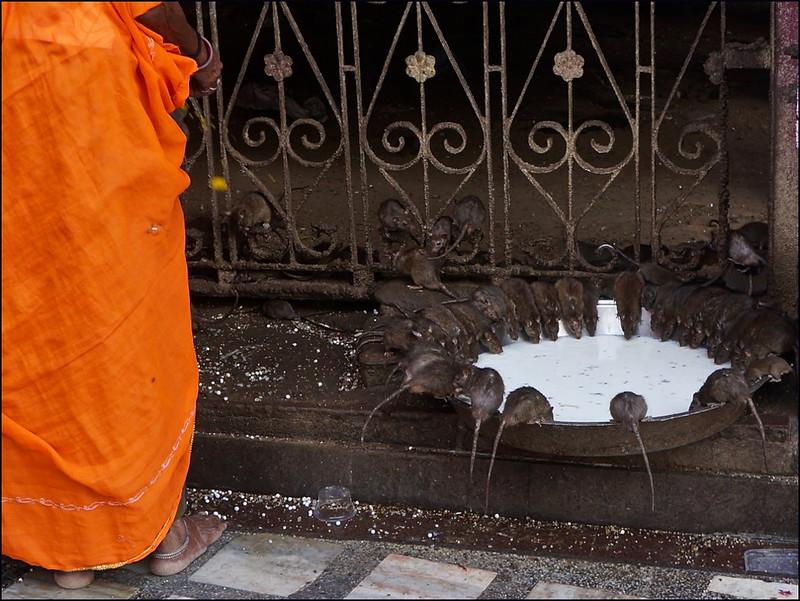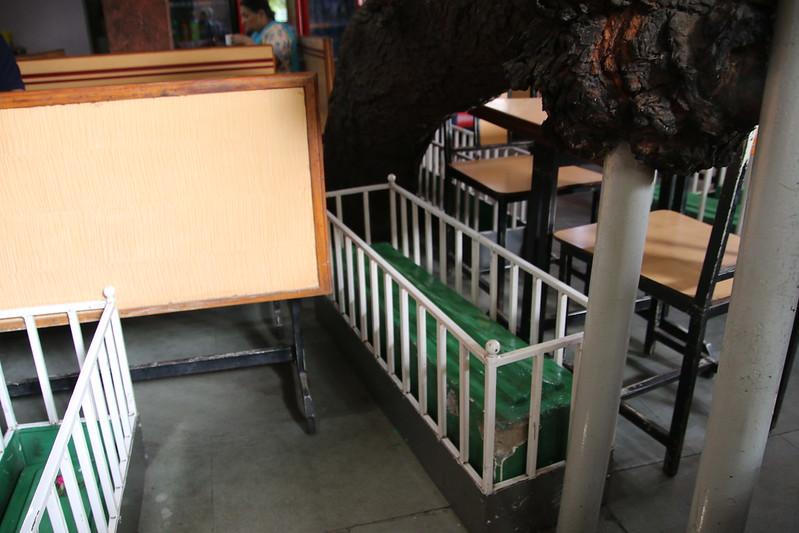Top Weird Unusual Attractions In India

We all know India is full of historical as well as natural attractions that have made it a tourist hotspot of the world. But did you know that it is also home to some of the world’s unique and bizarre attractions? Indeed it is. Our country is lined with weird places that are sure to more than amaze you. Visit these unique places in India on your next trip and see for yourself. From Jammu and Kashmir in the north to Tamil Nadu in the south, from deserts of the west to blissful land of the northeast, almost every state has its own contribution in these mysterious places in India. Check out our top 10 unique places in India that are sure to pleasantly surprise you and leave you wanting for more.
1. Toilet Museum New Delhi

Designated as one of the weirdest museums in the world by Time magazine, the Sulabh International Toilet Museum in Delhi is truly unique and one of its kind. Located in Dwarka in west Delhi, this Toilet museum showcases varied styles of toilets from over 50 countries. You will find various different style toilets here from carved and jeweled to the Victorian toilet to books and space toilet. The museum portrays a history of toilets and sewage systems from 3000 BC to the modern-day and will surely leave you awestruck.
2. International Doll Museum Delhi

Located in the Children’s Book Trust in Delhi, the International Doll Museum displays dolls from over 32 different countries. The museum has a whopping 7000 exhibits displayed in glass cabins over 1000ft long and exhibiting dolls from European countries, the U.K., the U.S.A, Australia, New Zealand, and the Commonwealth of the Independent States, and the others from Asian countries, the Middle East, Africa, and India. There are over 150 dolls from India alone! You can visit anytime from 10 am to 6 pm. These museums are easily reachable from Treebo hotels in Delhi.
3. Shani Shingnapur Maharashtra

Have you heard the story of the village where there are houses without doors and no theft takes place? It is Shani Shingnapur in Maharashtra. Situated around 84 km from Aurangabad, Shani Shingnapur is believed to be protected by Lord Shani by the locals. It is said that the village and the villagers are protected by Shani and anyone who attempts theft is punished by God. The tradition has been followed for over 400 years now making it not only weird but one of the most unique places in India.
4. Karni Mata Temple Rajasthan

This truly classifies as a weird attraction as it is the only temple where rats are worshipped! Nestled 30km in the outskirts of Bikaner, the Karni Mata Temple is also known as the temple of rats. Over 25000 rats live here and are called kabbas. Legend has it that Laxman, son of Karni Mata, drowned in a pond close to the temple. Karni Mata implored the Lord of Death Yama to revive him. Yama agreed and blessed that Laxman and all his brothers will be reincarnated as rats. Every year, grand fairs are organized at the temple in March and September, during the Navratri festival.
5. Channapatna Dog Temple Karnataka

Dog lovers, this is truly your place to be. Situated in Agrahara Valagerehalli village in the city of Channapatna in Karnataka, is Channapatna Dog Temple. As the name suggests, this is temple dogs. Built in 2010, this temple worships dogs alongside the deity. It is said that the dogs protect the city from negativity and bad culture. Not just the temple, even the village of Channapatna is one of the unique places in India. It is known as ‘town of toys’ as it makes absolutely gorgeous colourful lacquerware and wooden toys and dolls!
6. New Lucky restaurant Gujarat

Located in Lal Darwaza region of Ahmedabad, New Lucky Restaurant is a place to dine with the dead!. Built almost 60 years ago, the restaurant has tables placed right next to coffins. Krishnan Kutti, the restaurant owner decided to bank on the fact that his new restaurant site was an old burial ground for Muslims. Therefore, instead of removing or covering the tombs, he built the restaurant around it and offered us a chance to dine at this unique establishment. Today not only is it famous for tea and snacks but as unique places in India.
7. Loktak Lake Manipur

Nestled in the magical lands of Manipur in the northeast, Loktak Lake is nature’s architecture at its best. Known as the ‘world’s floating lake’, it is the largest freshwater lake in the northeast and one of the naturally existing mysterious places in India. The lake spreads over 300 sq meters and an ecologically diverse hotspot for organic matter, vegetation, and soil and serves as a source of livelihood for the local inhabitants. It is also awarded the ‘wetland of International importance. The north zone of the lake has 5 streams. The central zone comprises islands and is also good for fishing. The southern zone is the Keibul Lamjao National Park, which is the world’s only floating national park and home to almost 424 animal species and around 100 species of birds!
8. Living Root Bridge Meghalaya

If you want to witness something naturally bizarre, this is it. Nestled in the Khasi and Jaintia hills of Cherrapunji Meghalaya, you can find this bridge formed of living plant roots! The bridges have formed naturally by tree shaping and connect the forest. Also known as the Umshiang Double Decker Living Root Bridge, this magnificent bridge is made of India Rubber Tree. The bridge is located at an elevation of 2400 feet and almost 3km in length and a remarkable mix of nature’s engineering and artistic skills. This living roots bridge is indeed one of the mysterious places in India.
9. Magnetic Hill Ladakh

The Magnetic Hill is located 11000 ft above sea level in Ladakh, one of the most sought-after bikers’ destinations. If you are planning a trip to Leh-Ladakh, don’t miss a visit to one of the most unique places in India. The hill is believed to have an anti-gravitational effect that will pull your vehicle towards it even if the engine is off. As such it is advised that you place your vehicle in neutral gear on the spot marked in white. Now watch and be amazed by this peculiar attraction as you find your car moving uphill on its own due to gravitational pull!
10. Great Banyan Tree at Botanical Gardens Kolkata

The 250-year-old Great Banyan Tree lies in the Botanical Garden in Kolkata. Built in 1787, the park is gorgeous landscaped with topography and artificial lakes and a true delight for nature lovers. The gigantic banyan tree is however the main attraction in this magnificent garden. The Great Banyan Tree is the second most extensive canopy in the world. It is said that in 1925, due to cyclones, the main trunk of the tree became diseased and had to be removed to save the rest of the tree. In return, the tree saw cloning of its roots. At present, you can find 3600 area roots which look like a forest itself and have a circumference of 450 meters already.
These are just a few of the top unique places in India. You can find Treebo hotels in all these places and easily visit them. If you have visited any of these or planning to visit, please let us know by dropping a line in the comments below. Your stay is fully protected with our Treebo Hygiene Shield.























